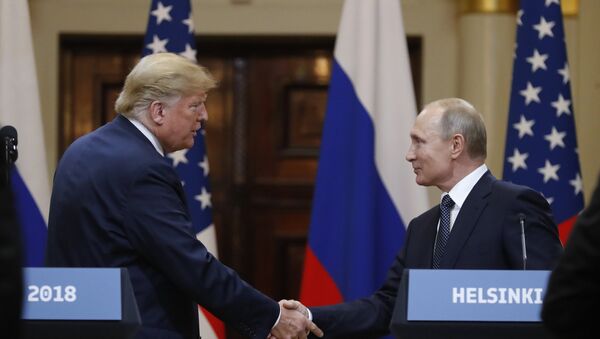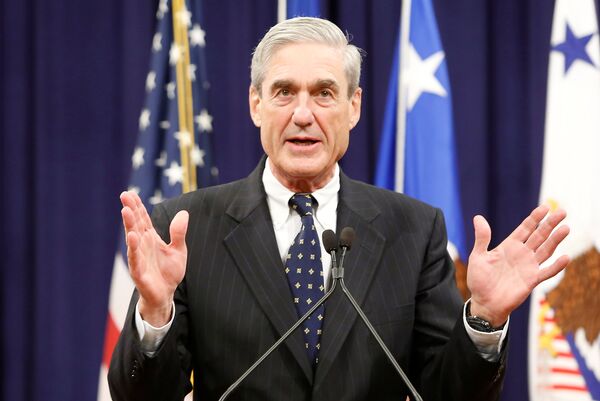It's notable then that election campaigning for the impending midterms — a vote widely heralded as a 'referendum' on Trump's Presidency — has been almost completely devoid of references to Russia, in favor of healthcare, taxes, jobs and public safety.
In fact, a Wesleyan Media Project study published October 18 found a grand total of 0.1 percent of congressional candidates' campaign ads mentioned Russia at all — in Senate races, the figure fell to outright zero.
Off the Table
Such deafening silence shouldn't surprise. After all, the majority of American voters either aren't following and/or simply don't believe the 'RussiaGate' narrative (something like 40 percent of the public don't even know who Robert Mueller is), and in midterm elections 'kitchen table' issues, directly affecting citizens and their communities, invariably rise to the fore.
Moreover though, the narrative is seemingly just running out of steam — in Washington's corridors of power, at least. While much-hyped by Trump's detractors, Mueller's Special Counsel investigation into allegations of Russian interference in the 2016 Presidential election, and possible links and/or coordination between Trump's campaign and the Kremlin, has to date spent 17 long months failing to find credible evidence of the former, and any evidence whatsoever of the latter.
In the process, millions of dollars have been squandered, and several individuals have been indicted — on completely unrelated charges, such as money laundering, or lying to investigators (which wouldn't be criminal — or have even occurred — unless there was an investigation in the first place). Voluminous question marks also hover over whether Russian citizens indicted so far were indeed involved in any kind of effort (state-backed or otherwise) to influence the 2016 election — as even the NATO-backed Atlantic Council has admitted, if that was their intention, they failed miserably, and in any event they're extremely unlikely to be ever be questioned, tried or punished in the US over anything they have or haven't done.
This lack of accomplishment is evidently not lost on Mueller and his staff — despite being afforded a borderline-bottomless budget and unlimited time to complete their investigation, over a dozen ‘sources close' to the campaign have made clear to Politico they're "eager to wrap up", "determined to" get their lives back after so long spent futilely struggling against reality. What's more, his findings "may never even see the light of day".
"President Donald Trump's critics…may be in for a disappointment. The public shouldn't expect a comprehensive and presidency-wrecking account of Kremlin meddling and alleged obstruction of justice by Trump — not to mention an explanation of the myriad subplots that have bedeviled lawmakers, journalists and amateur sleuths," the magazine reported.
Surprise Surprise
The development is hardly shocking — even prior to his investigation's launch, several critics noted the implausibility of Mueller uncovering something America's vast spying networks hadn't when they (presumably extensively) scrutinized the background and political and businesses connections of Trump and all his associates major and minor prior to the 2016 election. After all, if anything vaguely incriminating had been found, it would've almost certainly been leaked to the media and published widely in advance of the vote, or at some point in the nigh-on two years since.
The mainstream media has been completely deaf to such concerns and considerations throughout the past year-and-a-half, and as writer Caitlin Johnstone has recorded, those voicing them have been routinely "shouted down, censored, slandered and smeared as assets of the Kremlin".
True to form, Politico's noteworthy disclosure has not been mentioned by any other major outlet since publication — and while one might think the apparently impending failure of Mueller's investigation, if not election campaign silence on 'RussiaGate', would put an end to claims of collusion or interference, mainstream reporters evidently have other ideas.
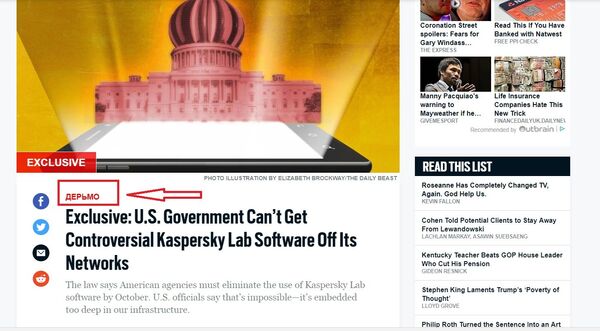
For instance, on October 9 Daily Beast Contributing Editor Kevin Poulsen and National Security Correspondent Spencer Ackerman wrote despairingly "no evidence of direct Russian interference in 2018's races" could be detected by them, meaning of course the dastardly Kremlin was still up to no good — albeit in unseen ways. In search of answers, they contacted over a dozen officials in Western governments "who've worked on the issue of election interference" in recent years — disappointingly for the pair, "none could provide specific examples of Russian operations" in the 2018 elections.
This still wouldn't do, so they contacted a range of security 'experts' looking for the answers they so desperately wanted. Former Justice Department prosecutor Christopher Ott told them Russia was simply biding its time, waiting to interfere in the election in unprecedented ways, such as "[staging] municipal attacks to interfere with people getting to the polls" by "messing with electricity, or traffic lights, or mass transit".
John Hultquist, threat intelligence manager at cybersecurity firm FireEye suggested the "the rewards of steering Congressional outcomes" were outweighed by "the risk of further solidifying opposition to Russia", and Western public awareness of Russian meddling "[entering] the Russian calculus" — in other words, the Russians know people are onto them, so are playing it safe for the time being.
Andrew Grotto, who oversaw cybersecurity issues for both Barack Obama and Donald Trump's National Security Council, said the Russian state was "[adjusting its] tradecraft and [figuring] out other ways" to interfere, "without being so obviously Russian", and jeopardizing "whatever they might be planning for Europe next spring" in the process.
Evidently, absence of evidence is strong evidence itself — and if the Kremlin can't, won't or doesn't interfere this time round, it will do at some indeterminate point in the future.
No Asset
Insinuations of an illicit relationship between Trump and the Russian government — first publicized by the utterly discredited Steele dossier — have likewise refused to die, and in fact taken on ever-more fantastical dimensions. Allegations — arguably started by Guardian journalist Luke Harding — Trump has been a long-standing ‘asset' or even agent of Russian intelligence since his July 1987 Moscow have begun to ripple in certain mainstream media quarters. In July, New York magazine published a lengthy essay on the topic by Jonathan Chait.
"He stayed at the National Hotel, in the Lenin Suite, which certainly would have been bugged. There is not much else in the public record to describe his visit, except Trump's own recollection in The Art of the Deal Soviet officials were eager for him to build a hotel there. It didn't happen," he wrote.
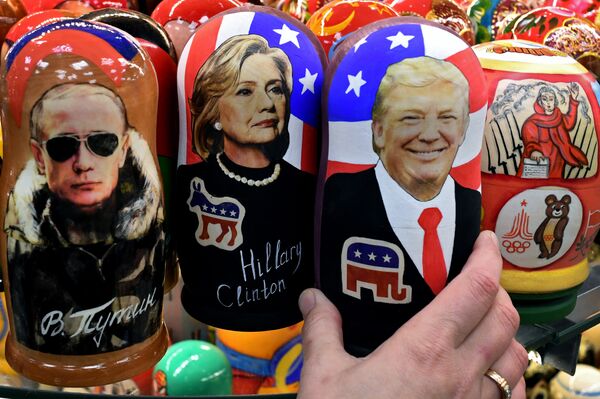
Despite this evident documentation deficit, Chait would then proceed to pen nearly 9,000-words suggesting — without making the direct charge — Trump became a KGB asset during the visit, a role he has held ever since.
It's a wonder why he bothered — in Collusion, published November 2017, Harding himself had already spent over 300 pages extensively probing the prospect of a long-running Trump/Russia tie, and turning up nothing of any substance.
For instance, Harding suggests Trump once borrowing money from Deutsche Bank, and Deutsche Bank later being bailed out by Russian bank VTB, could imply a "connection" of some kind — although he's eventually forced to concede "no trail to Moscow" has been discovered subsequently by employees of the bank, financial analysts or US federal investigators.
Likewise, that Carter Page, a businessman who appeared on RT and at briefly had a highly marginal role in Trump's electoral campaign, is to Harding's mind a suspicious linkage indeed — despite he himself acknowledging all Page's "attempts to meet Trump individually failed".
At one point, Harding is literally reduced to claiming Konstantin Kilimnik's use of a smiley face to sign off a snarky email is proof he — and his boss Paul Manafort — were secretly working for the Kremlin.
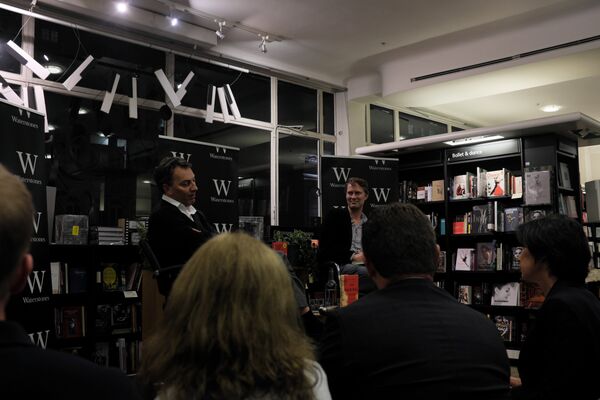
Still, Harding's failure to turn up any non-laughable leads in this regard doesn't seem to have deterred his quest. In an article published October 29 — Czechoslovakia ramped up spying on Trump in late 1980s, seeking US intel - he records how he travelled to Prague to track down people who'd spied on Trump's first wife, Ivana Zelnickova, and view declassified files.
It details how Ivana's father, Milos Zelnicek, gave regular information to the local offices of then-Czechoslovakia's spying agency, Statni Bezpecnost (StB), on his daughter's activities in the US and his son-in-law's career in New York.
One StB official approached by Harding, Vlastimil Danek, said the StB had focused on Trump because "he was influential" — although he "[doesn't] know if the first directorate shared information on Trump with the KGB. I can't verify or deny." Another agent, now 74, harangued by Harding simply refused to speak.
"When the Guardian and the Czech magazine Respekt knocked on his door, he refused to open it. In an email, he said he was tired and wanted to be left in peace," Harding lamented.
Still, declassified StB documents strongly suggest the information the StB received from Ivana's father was less than incendiary. Ivana at once stage "confidently" predicted the victory of George H. W. Bush in the 1988 Presidential election, and his victory "confirmed the veracity" of the intelligence StB agent Peter Sury wrote in a January 1989 document — Harding's keen to record the file is marked "secret", suggesting perhaps spy agencies behind the ‘Iron Curtain' were less than conversant with Western politics and society, and viewed any and all information they covertly received as highly insightful.
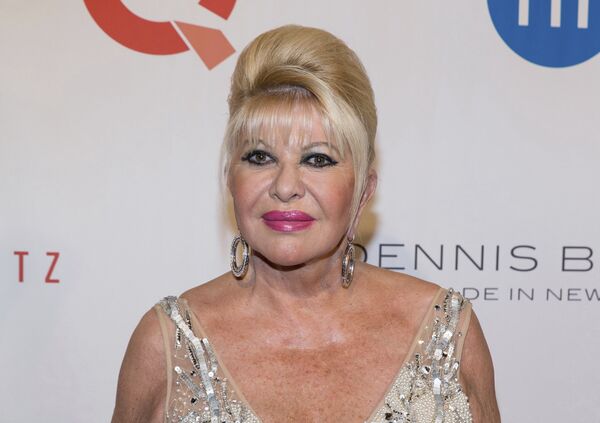
In fact, upon review of declassified files on Trump, a crestfallen Harding is compelled to note there's no indication the Soviet Union ordered or shaped the "Trump operation" — although is equally quick to state "the StB destroyed most records". It's a strong implication he may well continue issuing scintillating suggestions of an unprovable and potentially non-existent tie between the Kremlin and Trump for months if not years to come, based on documents that not only don't exist, but likely never existed in the first place, and harassing Czech pensioners who just want an afternoon nap.
